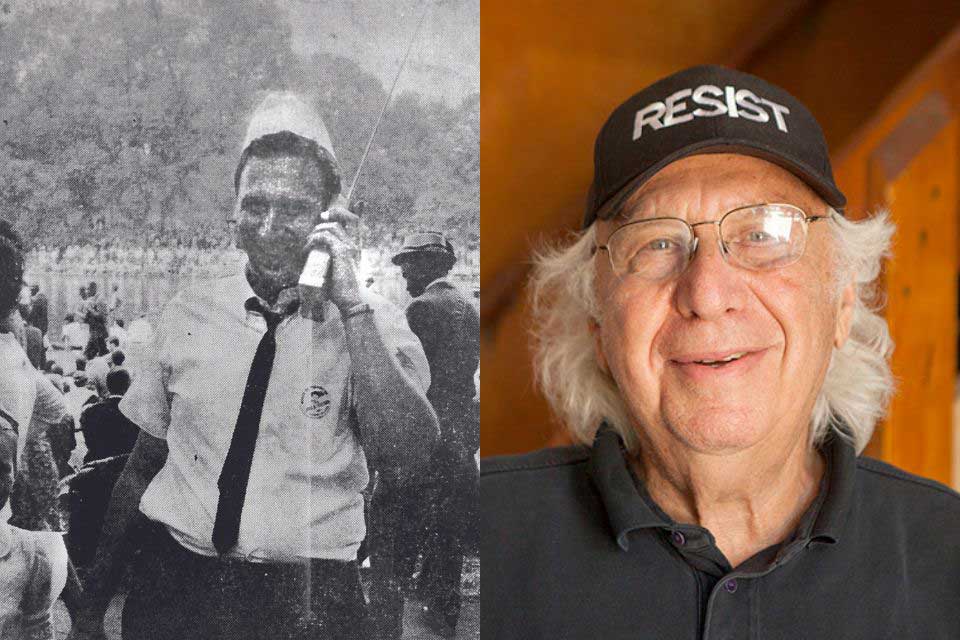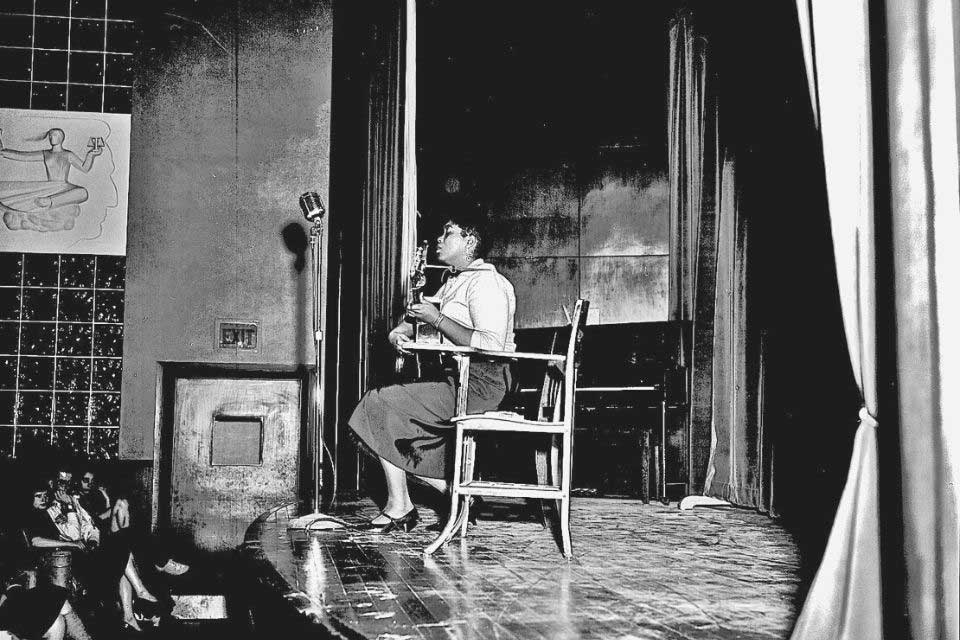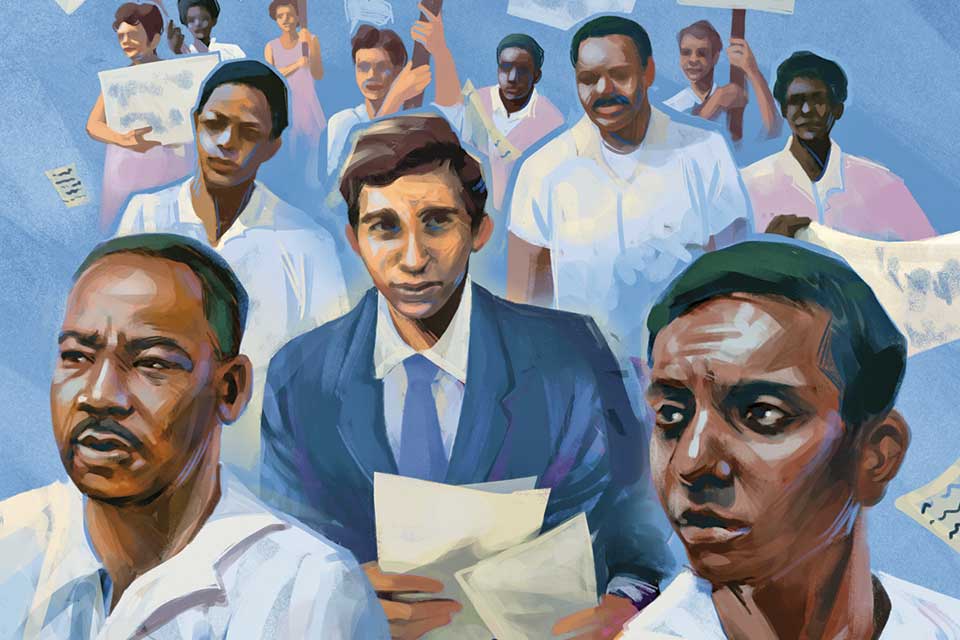Brandeis Alumni, Family and Friends
A World of Ideas: Looking Back at My Brandeis Beginnings, Part Two
As Brandeis University nears its 75th anniversary, Jules Bernstein ’57 reflects on his alma mater’s beginnings, and his own, in "Overruled, Mr. Bernstein! Sometimes Down, But Never Out," a new collection of personal essays. Read the first installment of Bernstein’s book excerpts here.
One of the areas of study that Brandeis was noted for, even during its first decade, was “the history of ideas,” a.k.a. intellectual history. Truthfully, the notion that ideas had a history of their own, and that history was not solely related to events, had not occurred to me before I arrived at Brandeis. That ideas influenced events, I understood. But that ideas had a life and a history of their own that could be studied was news to me. I remember being a green, 18-year-old freshman and hearing a senior in my dorm talking about his course entitled “A History of Political Theory in the West” and wondering to myself why “the West” (which I then thought meant the western part of the United States) would have its own political theory distinct from the East.
I learned soon enough about intellectual history once my European history class with the great Frank Manuel began. He lectured to the entire 300-member freshman class three times a week from a stage, swinging his one remaining leg over the table on which he was perched. We imagined that he had lost his other leg in the Spanish Civil War, but we never asked. He had been a 34-year-old intelligence officer in the U.S. Army in World War II. He died at age 92, in 2003.
In the second semester of my freshman year, I took social psychology with Philip Rieff, who spoke in such extraordinary academic jargon that I brought a huge tape recorder to class to record his lectures. Afterward, I would define the terms, decode the jargon, and analyze the lectures in my dorm room. Rieff and I became friends, and I later took a seminar with him in which I wrote a paper on Pavlovian Soviet science.
Despite his erudition, Rieff would occasionally show a lighter side. I recall that in the midst of one lecture, he was reminded of, and sang, an old left-wing labor song of the 1920s attributed to the Needle Workers Industrial Union, a communist-leaning rival of the International Ladies’ Garment Workers Union. It went:
The cloakmakers’ union is a no-good union,
It’s a company union for the bosses.
The old cloakmakers and the socialist fakers
For the workers are making double crosses.
Dave Dubinsky, Morris Hillquit, and Norman Thomas
To the workers always making a false promise.
They preach socialism, but they practice fascism
While they save capitalism for the bosses. Hooha
Great Minds of the Twentieth Century
In addition to Max Lerner, Frank Manuel, and Philip Rieff, I was privileged to learn from some of the other great minds of the twentieth century, scholars such as Irving Howe, Lewis A. Coser, and Herbert Marcuse.
A masterful description of the early Brandeis University faculty is contained in “Learning on the Left: Political Profiles of Brandeis University,” written by Stephen J. Whitfield, GSAS PhD’72, the Max Richter Professor of American Civilization, Emeritus, and de facto historian of the Brandeis story.
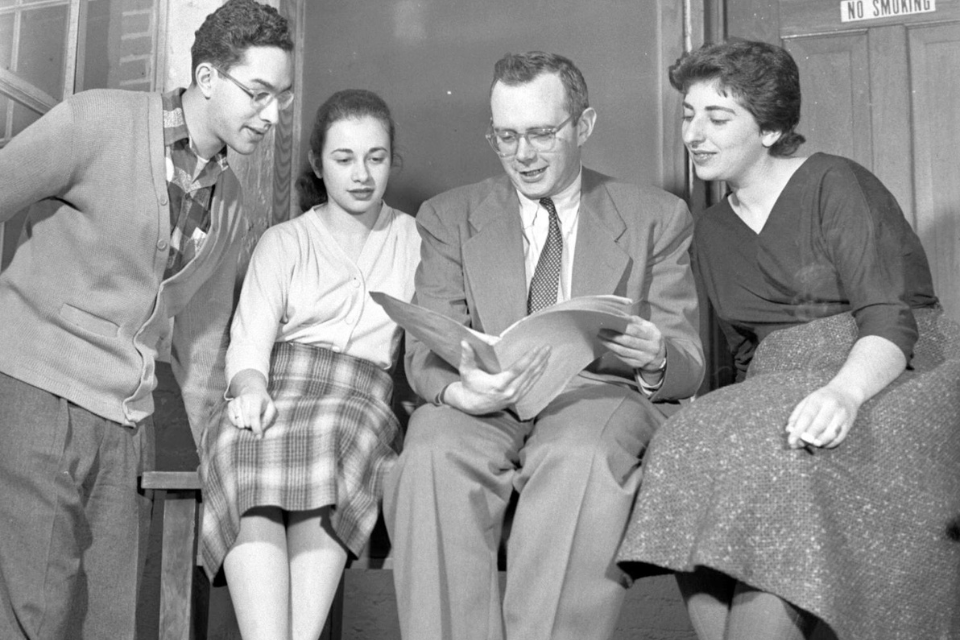
Irving Howe
My arrival at Brandeis in September 1953 coincided with the appointment of Irving Howe (originally “Horenstein”) to the Brandeis faculty. Over the next 40 years, Irving became my teacher, mentor, and friend, up until his death in 1993.
I did not take a course with Irving my freshman year, but I found that he, Lew Coser (a faculty member who taught sociology and became a favorite teacher of mine), Bernie Rosenberg (another sociologist), and several other faculty members were planning to publish a democratic socialist anti-Stalinist magazine to be known as Dissent.
Upon the publication of its first issue in 1953, I met Irving and Lew, along with a few other Brandeis students, including Michael Walzer. I was so enthused by talking with them and reading Dissent that I succeeded in selling some two hundred subscriptions on campus (without receiving any commission). This feat was enough to guarantee my status with Irving and the rest of the Dissent crowd on campus and elsewhere.
One of my marketing secrets had to do with my campus job serving meals to the students who were required by illness to spend time at the university’s infirmary. While I was delivering food trays to the sick, I was also busily selling them subscriptions to Dissent. My job as an infirmary waiter, which I can remember performing for at least two years, was an interesting and unique way to get to know many students on campus. And my Camp Onibar waiting skills served me well.
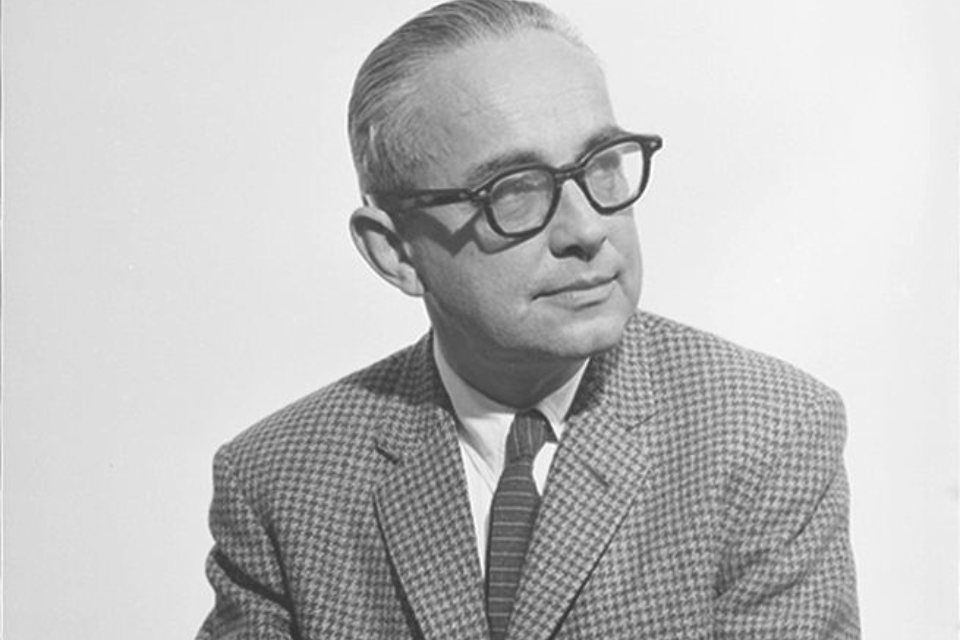
Lewis A. Coser
Lew Coser (originally “Cohen”) was also one of my most influential teachers. Lew was another German Jewish intellectual refugee whose field was sociology. Lew had met Irving Howe earlier as a democratic socialist comrade in arms and had urged Irving to look for a job at Brandeis, where Lew already was teaching. Together they wrote a searing history of the American Communist Party in 1962, and both were deeply involved in launching Dissent. It was partly because of my rapport with Lew and other members of the Sociology and Anthropology Departments that I chose sociology as my major.
Lew was my advisor on my senior honors thesis, which, not surprisingly, I titled “The Jew as Radical: The Marginal, Marginal Man.” In it, I studied the period 1880–1920 and traced the history of Jewish radicals in Russia and Poland and their personal reinvention after migrating from Europe to the United States. My particular focus was on how they addressed conflicts between their radical and revolutionary political postures and ideology, on the one hand, and their Jewish origins, on the other hand. (This problem continues to plague Jewish radicals to this day.)
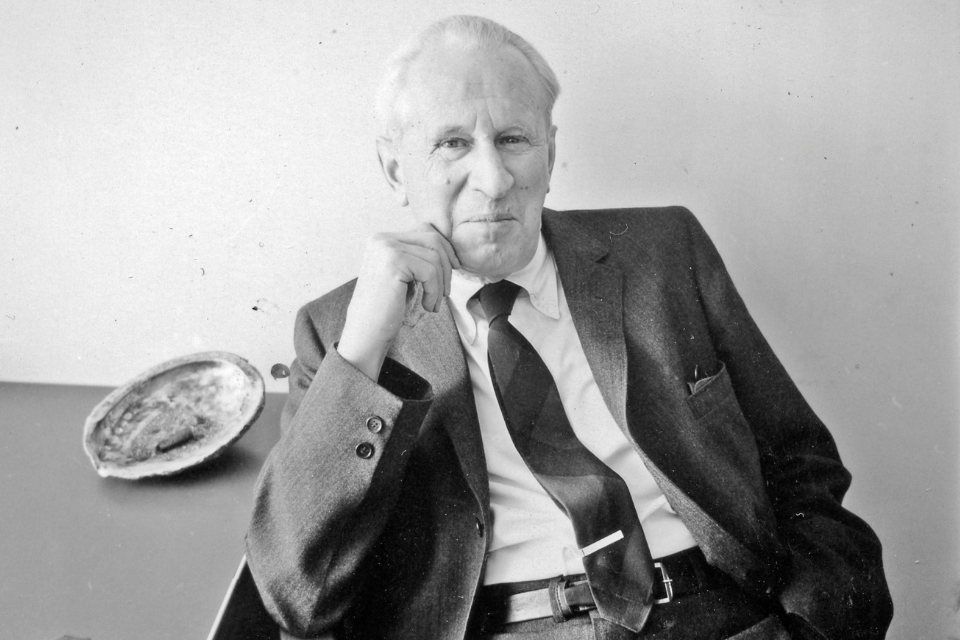
Herbert Marcuse
It was not until my junior and senior years that I studied with Herbert Marcuse. Marcuse was a prolific and highly influential writer and is often described as the intellectual father of the “New Left” of the 1960s. The first course of his I took was “History of Political Theory.” And as a senior, I enrolled in his “Twentieth-Century Political History” seminar, which dealt mostly with World War I, the Russian Revolution, the postwar period, and the rise of Hitler. As a young German Jewish intellectual, Marcuse had lived through most of these events. He taught at the acclaimed Institute for Social Research in Frankfurt.
Marcuse’s lectures were pure perfection. He came to class and proceeded to speak for 50 minutes, sometimes allowing time for questions. The lectures, delivered entirely without notes, seemed flawless and immediately publishable. Marcuse had an accent reflecting that German was his first language, but his knowledge and use of English were impeccable.
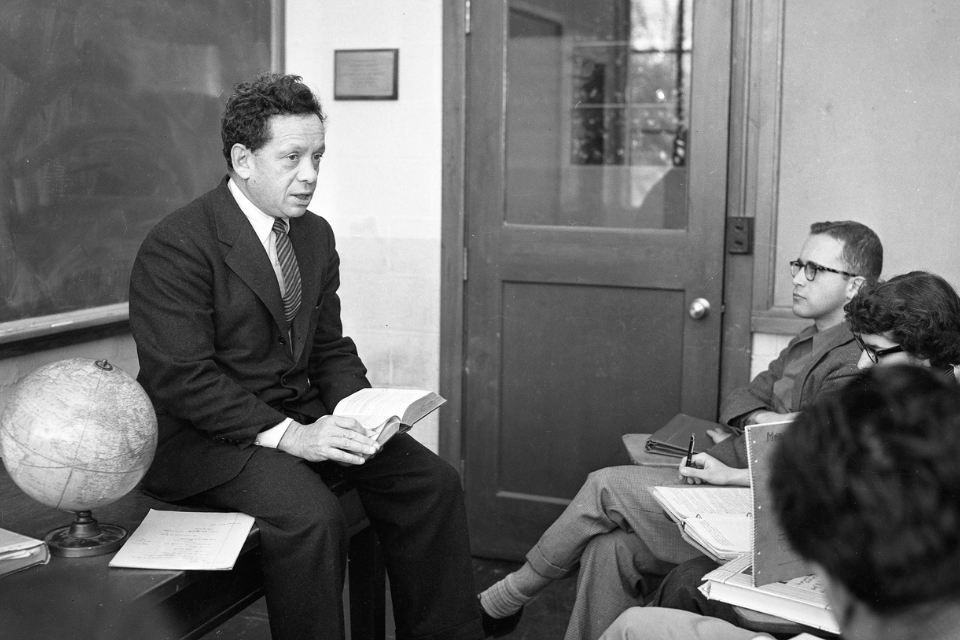
Driving Max Lerner
At the beginning of my senior year, while I was living off-campus in Waltham, one of my housemates, Steve Steinberg, called me from campus one afternoon and asked if I were interested in working as Max Lerner’s driver for the school year. Steve was always looking out for his friends!
The opportunity to drive Max from Logan Airport to campus Thursday mornings, to Cambridge after Gen Ed S (General Education for Seniors) on Thursday nights—where he filed his Friday New York Post columns at the Western Union (no laptops or email then)—and back to Logan Airport Friday afternoons was beyond my wildest dreams. So after having taken Social Science II with Max, Larry Fuchs, Bernie Rosenberg, Leonard Levy, and Arno Mayer, where our textbook was the draft manuscript of Max’s “America as a Civilization”, the idea that I would be driving Max for the entire school year boggled my mind. Indeed, it turned out to be a graduate course in life!
The drives were always eventful and an opportunity to talk about everything! Sometimes Marty Peretz ’59 would come along for the ride, just to spend a little time with Max. (Marty Peretz went on to teach at Harvard and served as a mentor to Al Gore, his roommate. He also bought and later published The New Republic.)
One day, my ’47 Chevy ran out of gas, and Max had to help push us to the next gas station. In the course of our travels, Max presciently persuaded me that it was the law, rather than an academic career, that I should pursue.
After I graduated, Max invited Marty and me to live in his brownstone on East 84th Street in Manhattan’s Yorkville neighborhood for several weeks and work on the “Notes for Further Reading” for “America as a Civilization”. Max would wake us up at about seven in the morning, and for several weeks we worked on the book daily until about eleven at night. Then we would go to the newsstand on Second Avenue for the next day’s New York Times, which we would devour. The air conditioners were not working, and the temperature was in the nineties. Max’s family had left for vacation, and so it was just us happy (and hot) three.
Anyone interested in learning more about this remarkable man should read the wonderful biography of Max by Sandy Lakoff ’53, titled “Max Lerner: Pilgrim in the Promised Land.” This vintage Max journal entry written in 1986, when he was 84, which appears in the book, speaks volumes about him:
If the young dream dreams, the old see visions of what can be. . . . There is a lightness of resolution in becoming old. Things that once seemed impossibly knotty somehow get resolved. It is when you have yourself been sternly tested in relation to events, family, and friends, and they in relation to you that you are surer of them and yourself. Testing is all. . . . At this point life acquires an economy, gets stripped of the inessential. You travel light, discard your accumulated surplus anxiety and rage, get rid of the encumbering baggage of life’s heavy protocols. This becomes a new personal polity, with power, rank, and status cut to the bone. You win a new freedom from labels and slogans, even from those of your own intellectual gang. . . . Thus equipped you are somewhat fitter to meet the inevitable batterings that age inflicts on the body, fitter also to respond with a mind more seasoned by adversity. You might even learn to confront Death when he comes offering to be your fellow traveler.
As I write this at 86, in fairly decent health and mind, I cherish Max’s advice, and so I continue to write. The end is still not in sight, the time provides special opportunities, but the uncertainty has its own challenges.
‘A special place at a special time’
Two brief vignettes of Brandeis in the 1950s provide additional insight into the school in the early years. The first is by Sandy Lakoff ’53, who is Max Lerner’s biographer:
Brandeis in the early years was, as the British political scientist Gordon K. Lewis perceptively noted, a kind of Oxford of the mind! Discoveries and encounters crowded the inner landscape. There were lectures by distinguished visitors: Buber, Maritain, and Tillich on religion, Justices Douglas and Frankfurter on the Constitution, David Ben-Gurion on the founding of Israel, Robert Maynard Hutchins on the sorry state of American culture. A poetry series meant weekends with W. H. Auden and Dylan Thomas. Leonard Bernstein mesmerized us with Mahler and led the thrilling American premiere of The Threepenny Opera and his own Trouble in Tahiti. In Gen Ed S (for seniors), Max Lerner invited creative men and women (also known as “role models”), including Margaret Mead, Archibald MacLeish, Leo Szilard, Alfred Kinsey, Agnes De Mille, and Norbert Wiener, to tell us of their turning points and torments. (A week later a faculty panel “dissected” the previous week’s guest and each other, to our shameless delight.)
We social science majors were especially privileged. American history came to us live each week from Columbia in the person of Henry Steele Commager, a bulldog who could not only stand on his hind legs and talk but give spellbinding lectures without notes for two hours straight. We read Max Weber with Lew Coser, Freud with Philip Rieff, Kant with Aron Gurwitsch, Nietzsche with Frank Manuel, Burckhardt on the Renaissance with David Berkowitz, and studied civil liberties with Leonard Levy, the power elite with C. Wright Mills, psychology with Abe Maslow and Jim Klee, and Marx with practically everyone. . . .
It was a special place at a special time and we were lucky to have been there when we were.
The second is by a friend, Jeremy Larner ’58, who later won an Academy Award for the screenplay of “The Candidate,” with Robert Redford.
In 1954, I came to Brandeis as a green 17-year-old from the Midwest, speaking with such a drawl that New Yorkers walked away before I could finish a sentence. A few years later, I’d become snotty enough to stand up at a Gen Ed session and ask the leader of Britain’s Labour Party in what sense he still believed in socialism. There was an air of unreality about Brandeis in the ’50s, but also a climate in which wildly individualistic teachers and students could feel that what they learned and believed in mattered. I remember a seminar where a student with a beautiful voice read the three-page story “Araby.” The argument that followed lasted 90 minutes, as three professors who were among the most compelling critics of their time violently debated the merits of the story, the value of James Joyce, the nature of realistic fiction, and the history of the West. We learned that disagreement was a style of taking people seriously, and that all tastes and values implied social and historical assumptions. Imagine my shock to graduate Brandeis and find that polite company did not generally accept these premises. Life continued to surprise me, and in some ways I remained a green Midwestern boy. The difference was that, after Brandeis, when disturbing events happened in the world, we could no longer call the whole community into a commons lounge and, young and old, green and ripe, fight it out together.
A final Brandeis note
At my graduation in May 1957, at which former President Harry Truman spoke, there were about 30 relatives from both sides of my family in attendance. For me it did not seem an especially great occasion, but for them, I was the first member of my family to graduate from college, and it was a truly major landmark and achievement for us all!
For me, I had spent four years opening up my mind to a world of ideas and thought that I did not know existed, which would remain available to me until this very moment. This was an opportunity that every human being ought to have the chance to experience if so inclined.
If I might try to summarize my view of the thrust of my Brandeis education, it was designed to help brighten and improve, with knowledge, truth, and human endeavor, the very imperfect world with which my cohort was presented. The Hebrew term tikkun olam, meaning “repair the world,” sums up the Judaic concept that holds that we Jews bear responsibility for not merely our own moral, spiritual, and material welfare, but also for advancing the welfare of society as a whole. And indeed, for my generation, coming out of the Holocaust and World War II periods, there was much we needed, and still need, to “overcome” and repair.
About the Author
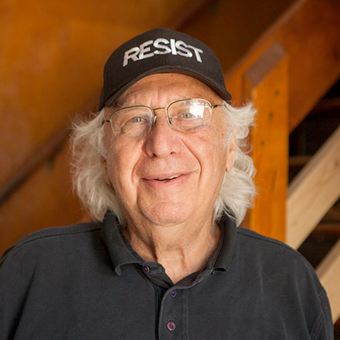
Jules Bernstein has been practicing worker and union-side labor law from Washington, DC, since the early 1960s. In addition, he has participated in many labor-organizing and bargaining struggles throughout his career. He was born in Brooklyn, New York, in 1935, and is a graduate of Brandeis University (BA 1957); the University of Chicago Law School (JD 1960); and the New York University Law School (LLM 1961). He served on the legal staff of two large unions for the first two decades of his career and has been in private law practice with his wife, Linda Lipsett, for the following 40 years, where they continue their law practice together.







